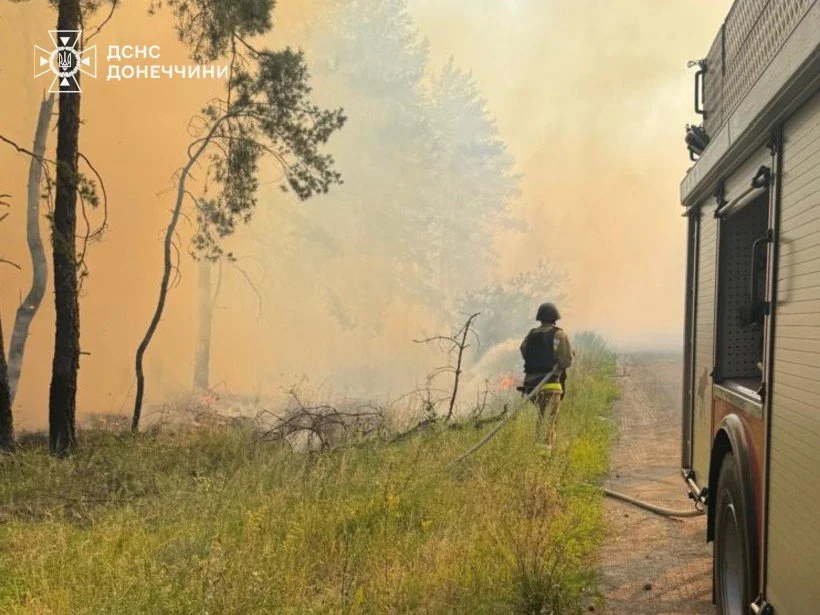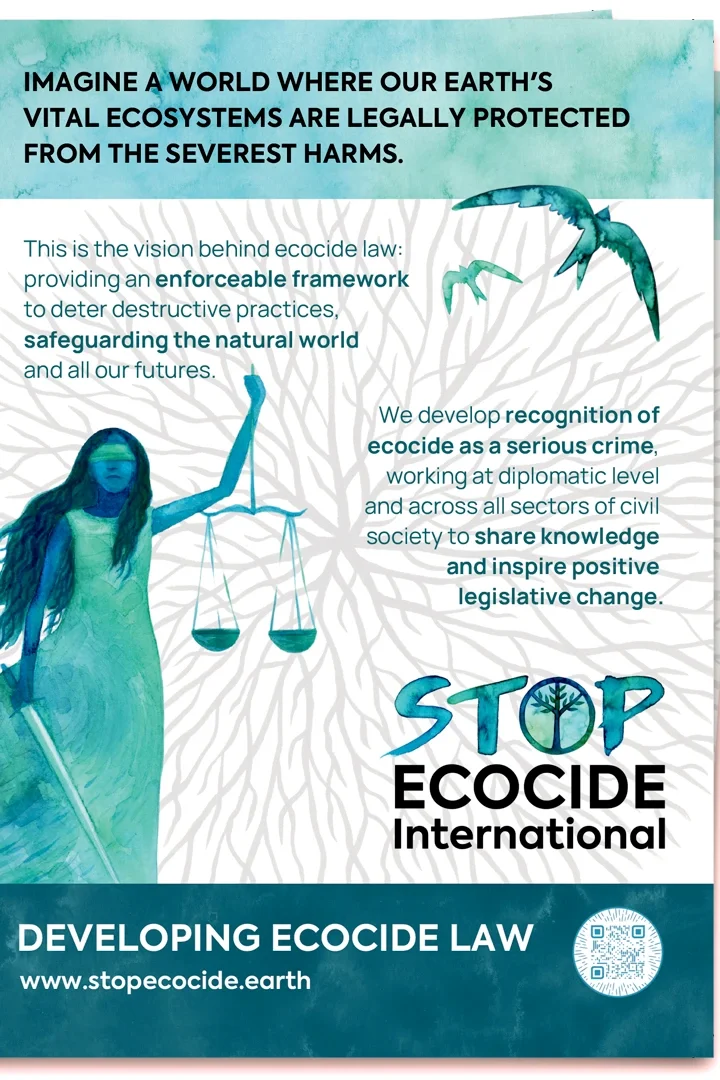Unlawful or wanton acts committed with knowledge that there is a substantial likelihood of severe and either widespread or long-term damage to the environment being caused by those acts.- Independent Expert Panel for the Legal Definition of Ecocide, Ecocide International

Serious environmental damage caused by an aggressor is a crime. However, it is not recognised as a crime in international law.
Thus, the perpetrators of ecocide can not be held accountable before the International Criminal Court.
Stop Ecocide International and other civil society organisations are working to introduce ecocide as an international crime under the Rome Statute - a grave violations of international law that affect the global community, as genocide, war crimes, crimes against humanity, and the crime of aggression.
Ecocide is included in the national laws of some countries and in the international bodies. For example, the Council of Europe's Convention on the Protection of the Environment through Criminal Law made a significant step in the right direction. The European Parliament proposed the inclusion of ecocide in EU law. UN Africa Summit named ecocide one of the priorities for 2025-27. However, environmental crimes are still not within the jurisdiction of the International Criminal Court.
It is time to urge European lawmakers to make further steps.
Photography: George Ivanchenko / The Kyiv Independent
-

Extermination
The agressor exterminates life in every form.
Entire ecosystems are burning, poisoned, and disappearing.
Forests and rivers are destroyed. Animals killed. Soil and air polluted.
-

Colonization
Destroying the nature isn’t just environmental damage – it’s part of a colonial strategy of domination and erasure.
It undermines the basis of local life and sovereignty. Environmental destruction becomes a tool of occupation and control
-

Occupation
Around 19% of Ukraine's protected areas are under russian occupation.
No protective or repair actions or loss estimation are possible there.

ECOCIDE IN UKRAINE
Deliberate shelling of industrial facilities results in emissions of oils and toxic gases, such as sulfur and nitrogen oxides. This causes soil and water pollution and kills land and marine organisms. There were over 1,700 cases of damage to industrial, energy, and oil facilities.
Over 9.650 square kilometres of Ukrainian land burned in 2024. Russia targets unique ecosystems, such as Dvorichanskyi National Nature Park, home to a lot of endemic plant species or Striltsivskyi Steppe Nature Reserve, one of the largest preserved steppe ecosystems. Contamination with landmines and unexploded shells makes reforestation nearly impossible, even after the war - it is deliberate, long-term destruction.
The animals are suffering - the underwater explosions and toxic chemicals are estimated to kill at least 50.000 Black Sea dolphins only in 2022. It is not only about the wild animals - eg, russia killed around half of the cow population of farms in Kharkiv Oblast.
Moreover, russian aggression caused over 230 MtCO₂e additional emissions since Feb 24, 2022. It is around 0.6% of global annual emissions, equivalent to all yearly emissions in Spain.
THIS IS ECOCIDE.
Centre for Environmental Initiatives Ecoaction is monitoring cases of potential environmental damage caused by russian aggression. As of November 2025, 2701 cases were reported, 222 of them with significant damage. You can check the map HERE.
Photo source: Main Department of the State Emergency Service of Ukraine in Donetsk region
-

Contamination
The consequences of destroyed ecosystems and soil and water pollution are long-term.
The recovery of country’s environmental performance from the armed conflict can take 20-30 years. And some ecosystems are pernamently destroyed.
-

Invasion
The nature destruction in Ukraine continues as long as the russian invasion continues.
Moreover, russia is targeting the rescue workers fighting the fires.
Every shilling strike is deliberative military action against environment and people.
-

Destruction
Entire ecosystems: forests, steppes, peatlands, are destroyed by the agressor.
It is not "collateral damage", but the deliberate destruction.
-

Exploitation
Russia plunders temporarily occupied territories out of it national resources.
Illegal logging, mining, and stealing of water resouces drives the aggressor and his war machine.
Bank of knowledge
We invite you for the series of webinars organised by CDN and Polish Young Greens on the topic of ecocide, as well as to check other recommended resources.
On October 15, 2025 yet another raid of russian occupation forces took place in Bağçasaray, Crimea, with at least four people detained. One of them – Nasiba Saidova, 18-year old pedagogical college student and kindergarten teacher. However, she is not the first young person to be detained by so-called “authorities”. During this seminar we will learn stories of young people detained and illegally sentenced by russia and discuss, what can we do for their liberation?
This content has been produced by CDN by the participants of the “Environmental Consequences of War: Monitoring and Overcoming” International Activity with the financial support of the European Youth Foundation of the Council of Europe. The opinions expressed herein are the responsibility of the authors and do not reflect the official opinion of the Council of Europe.











